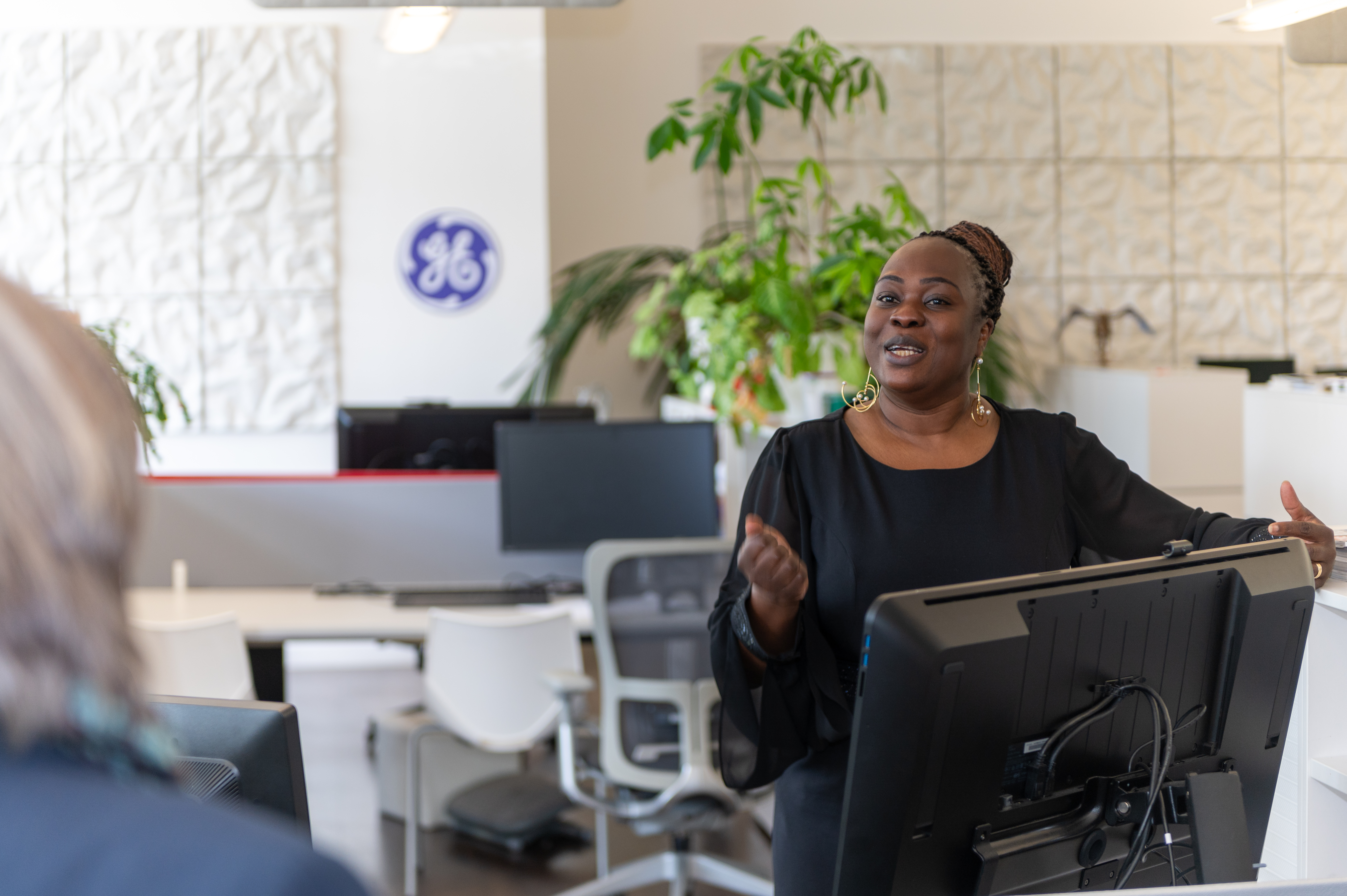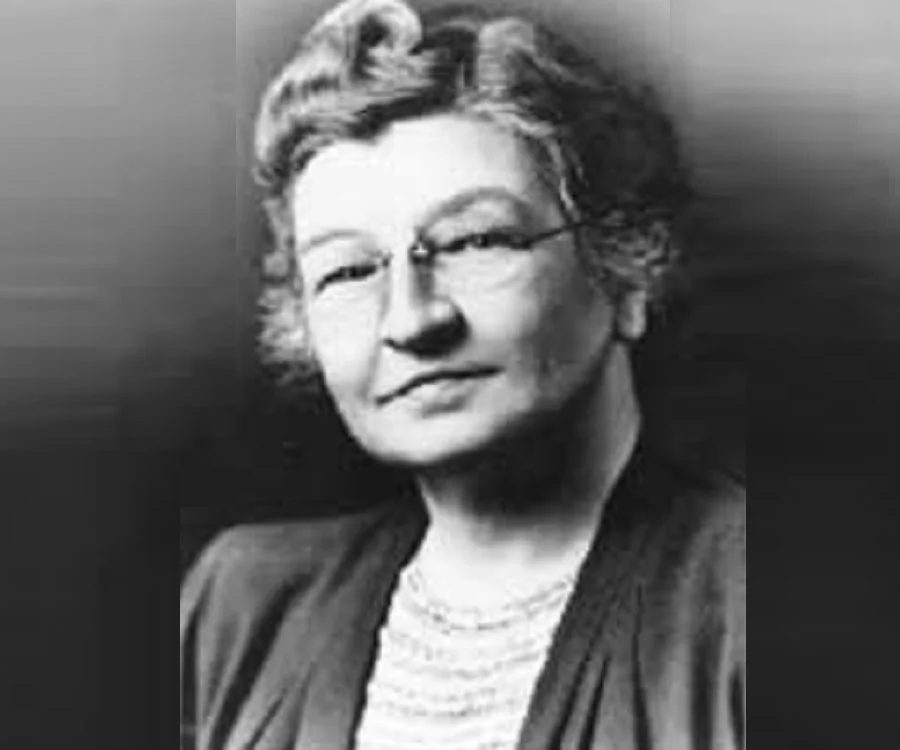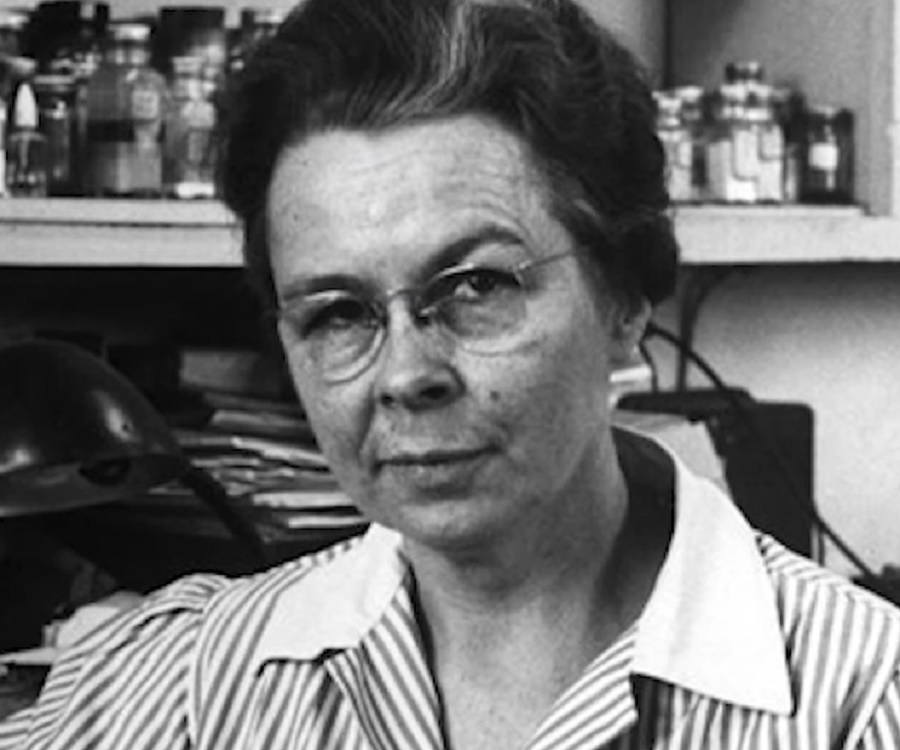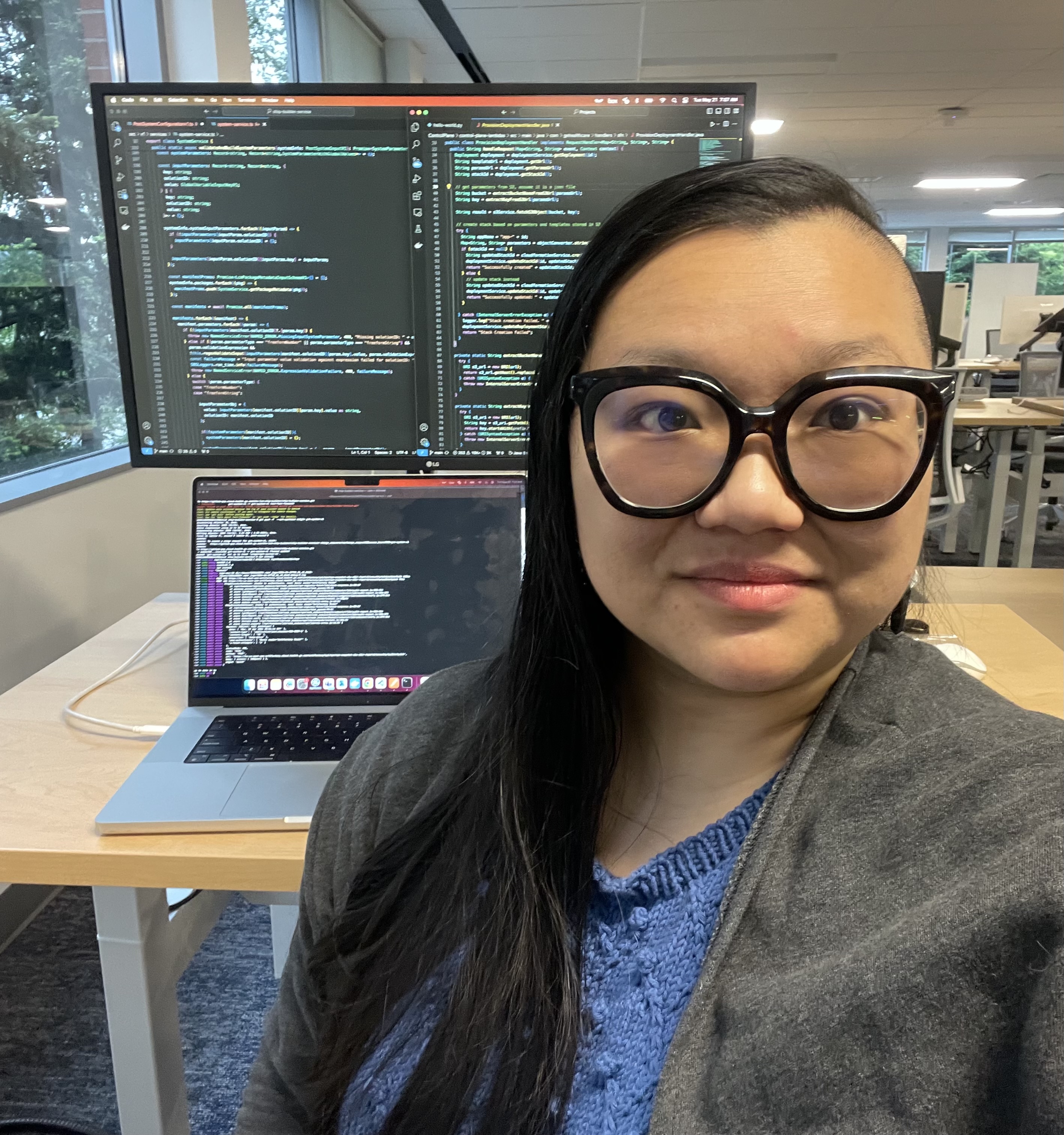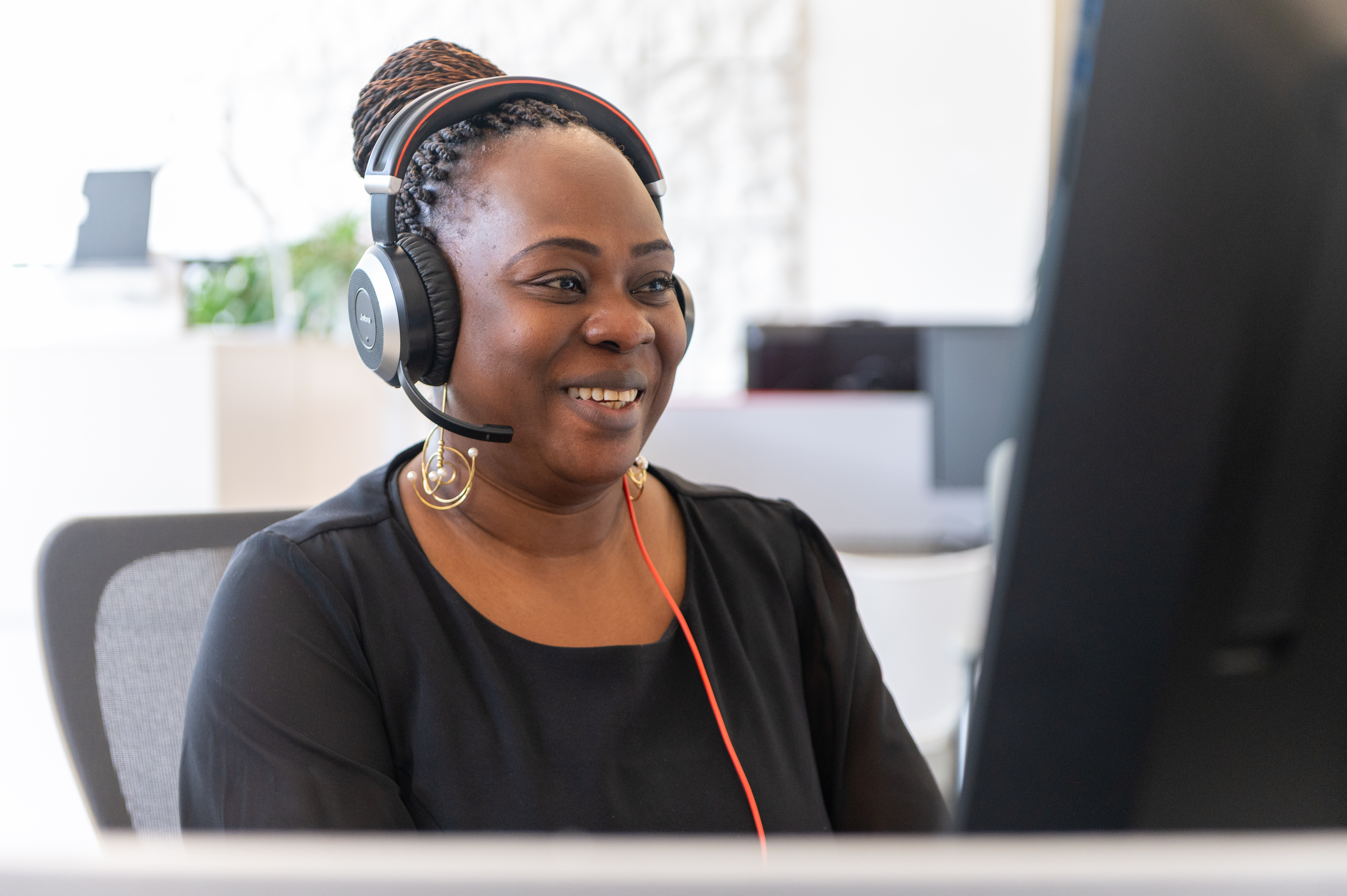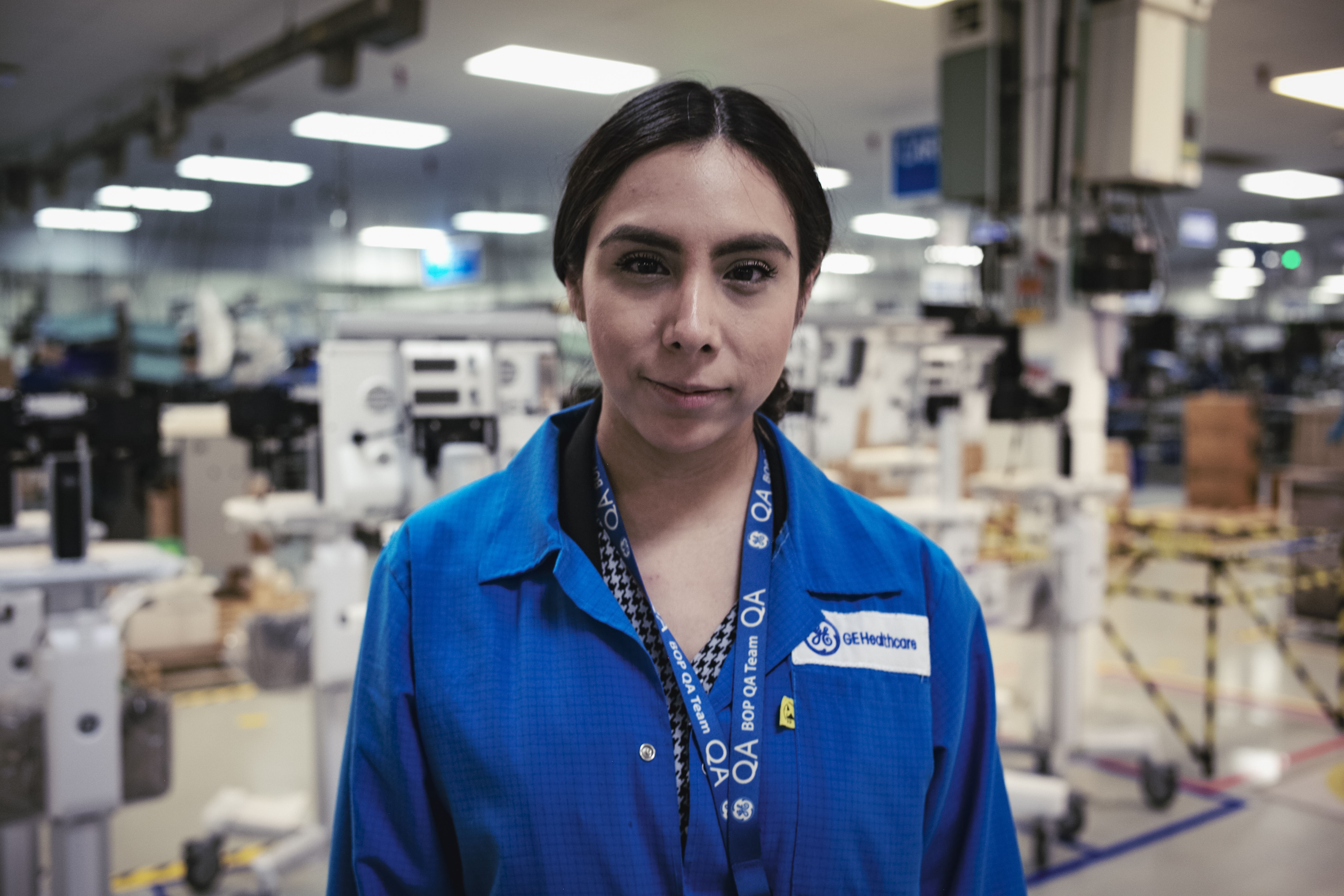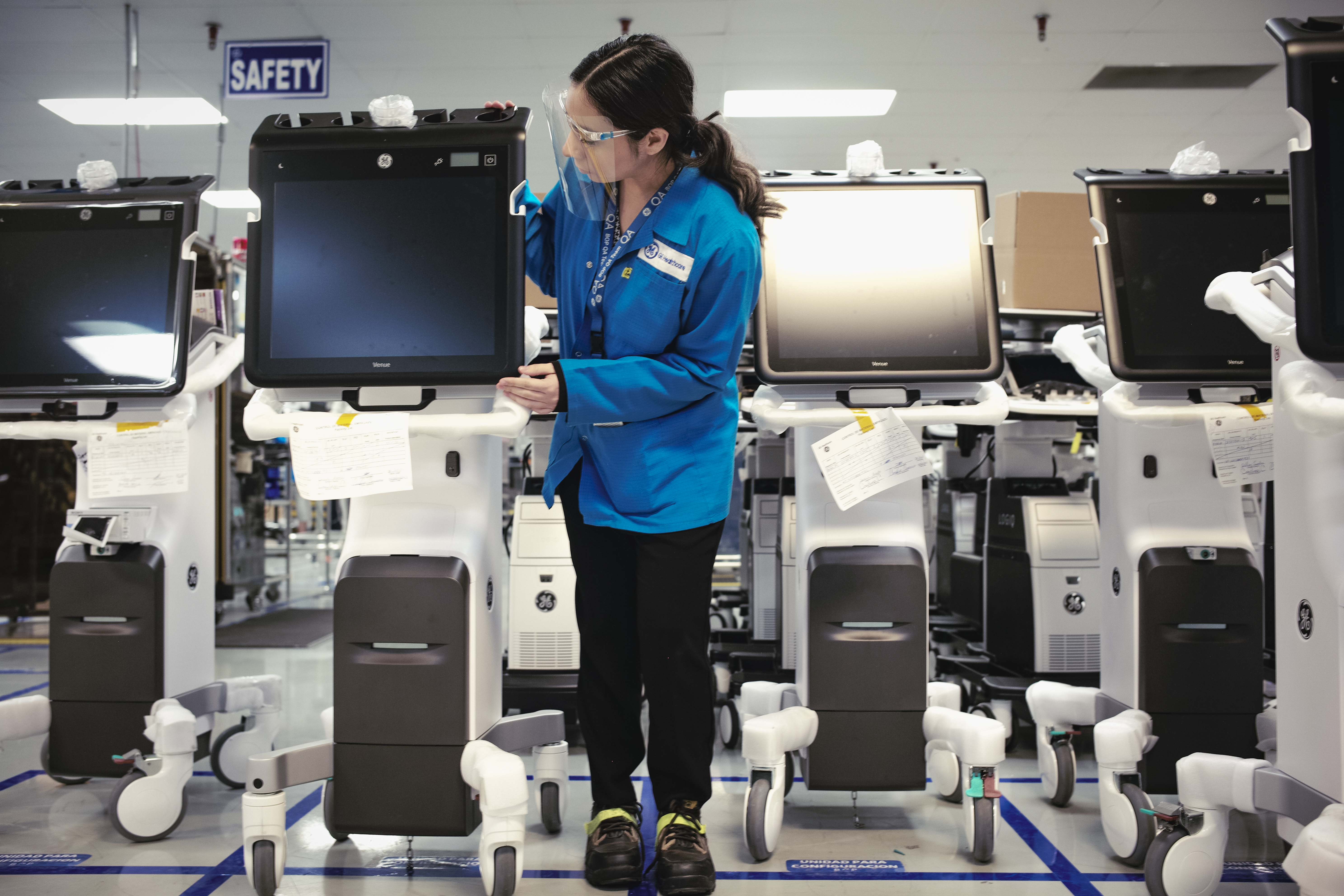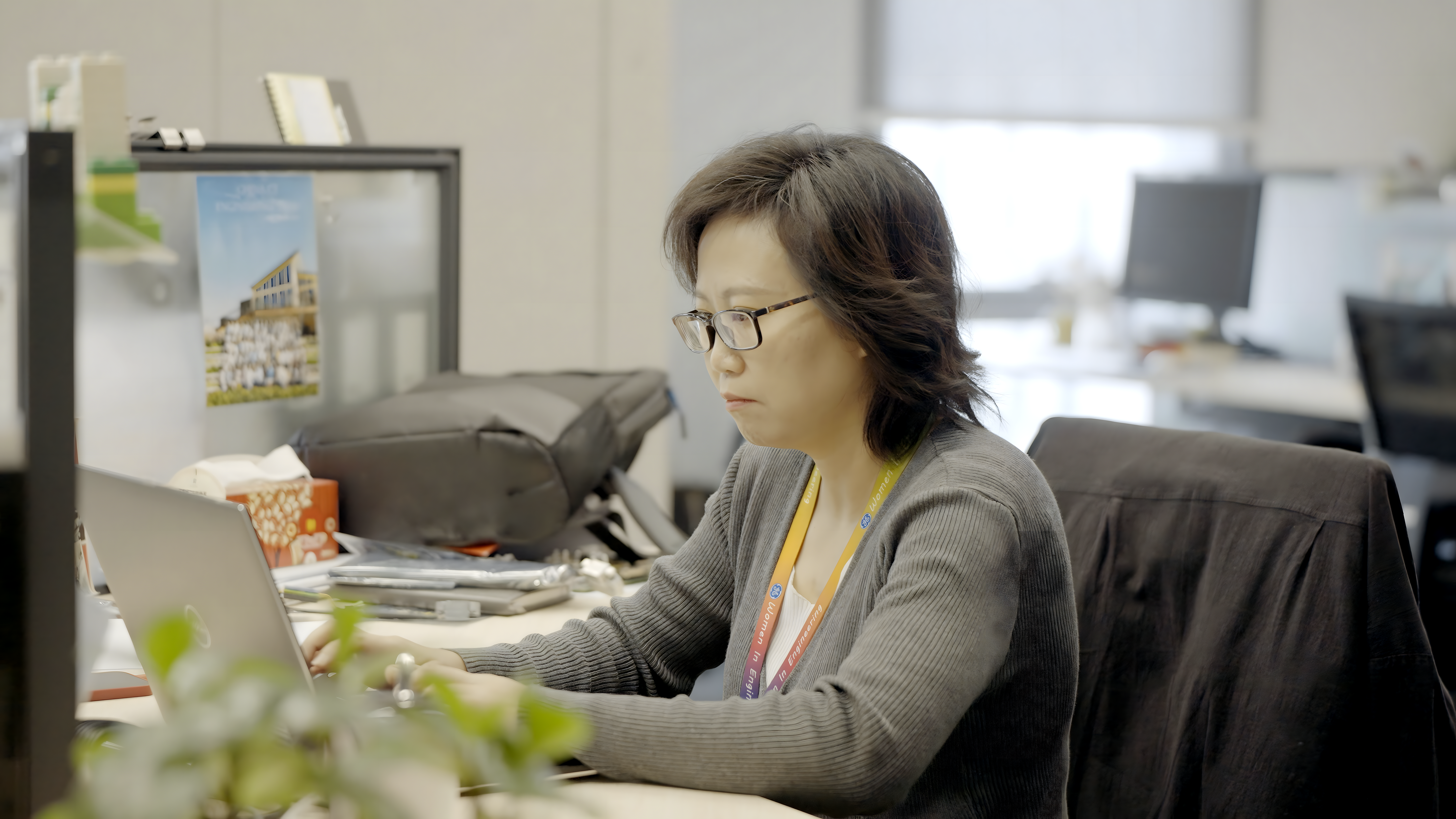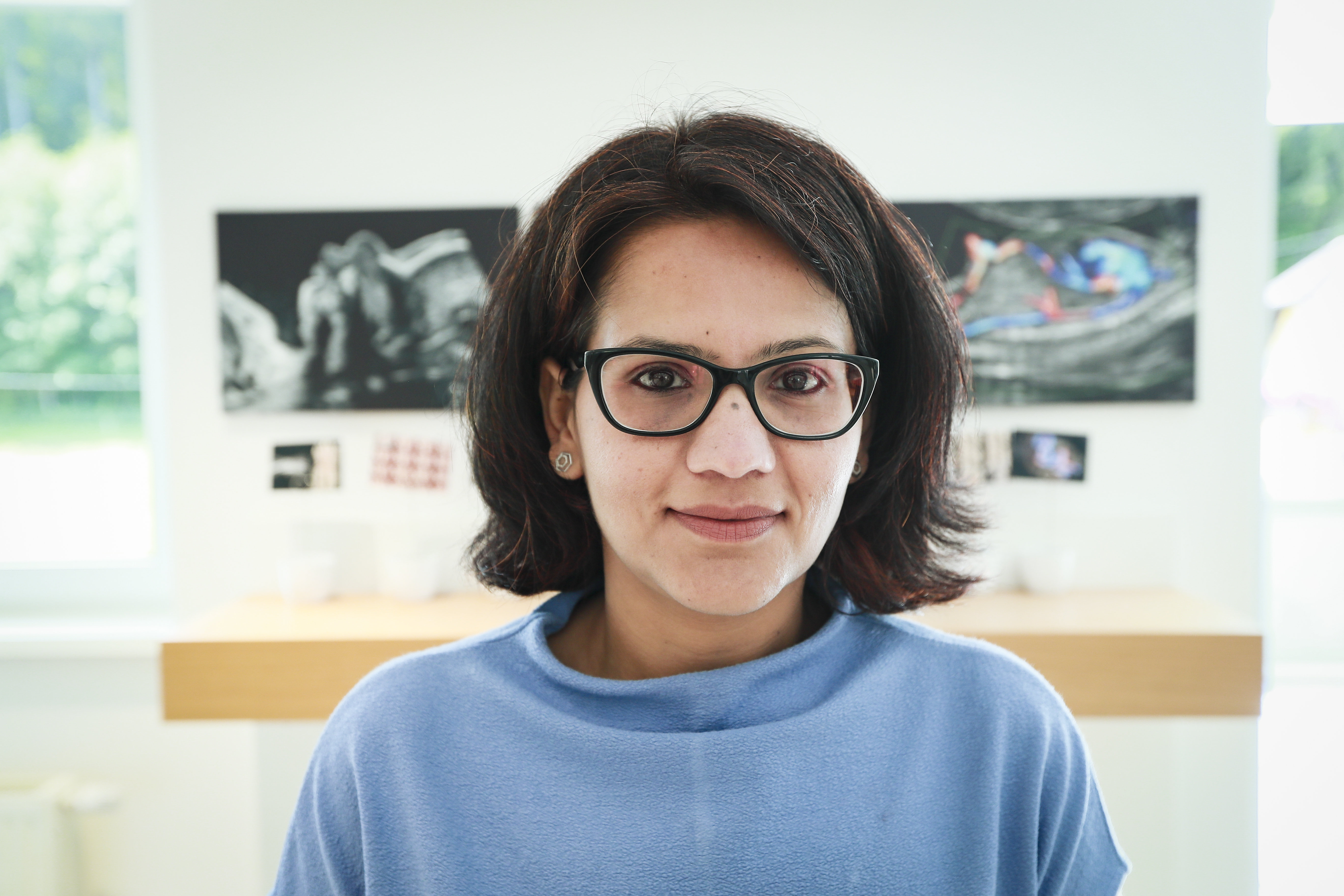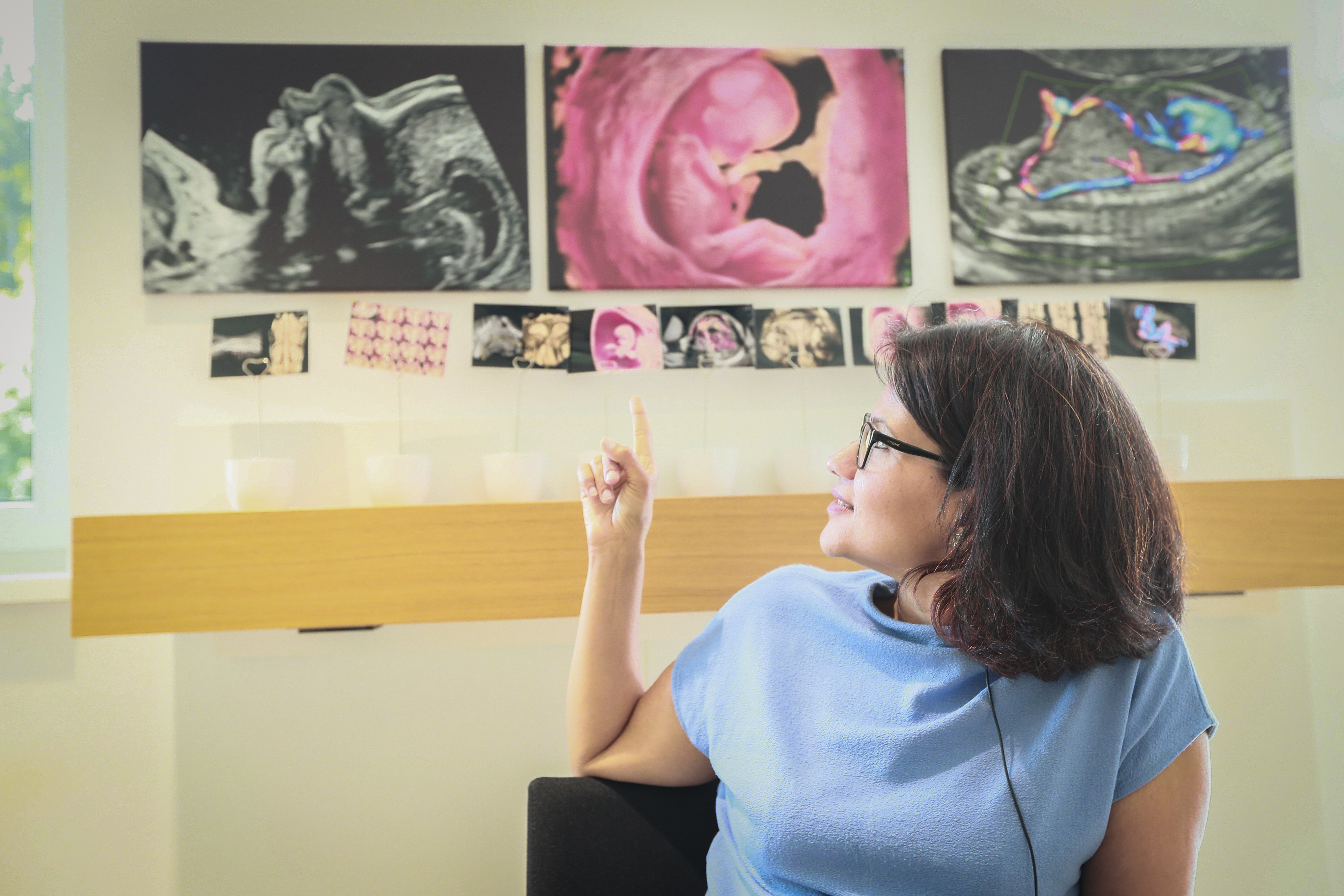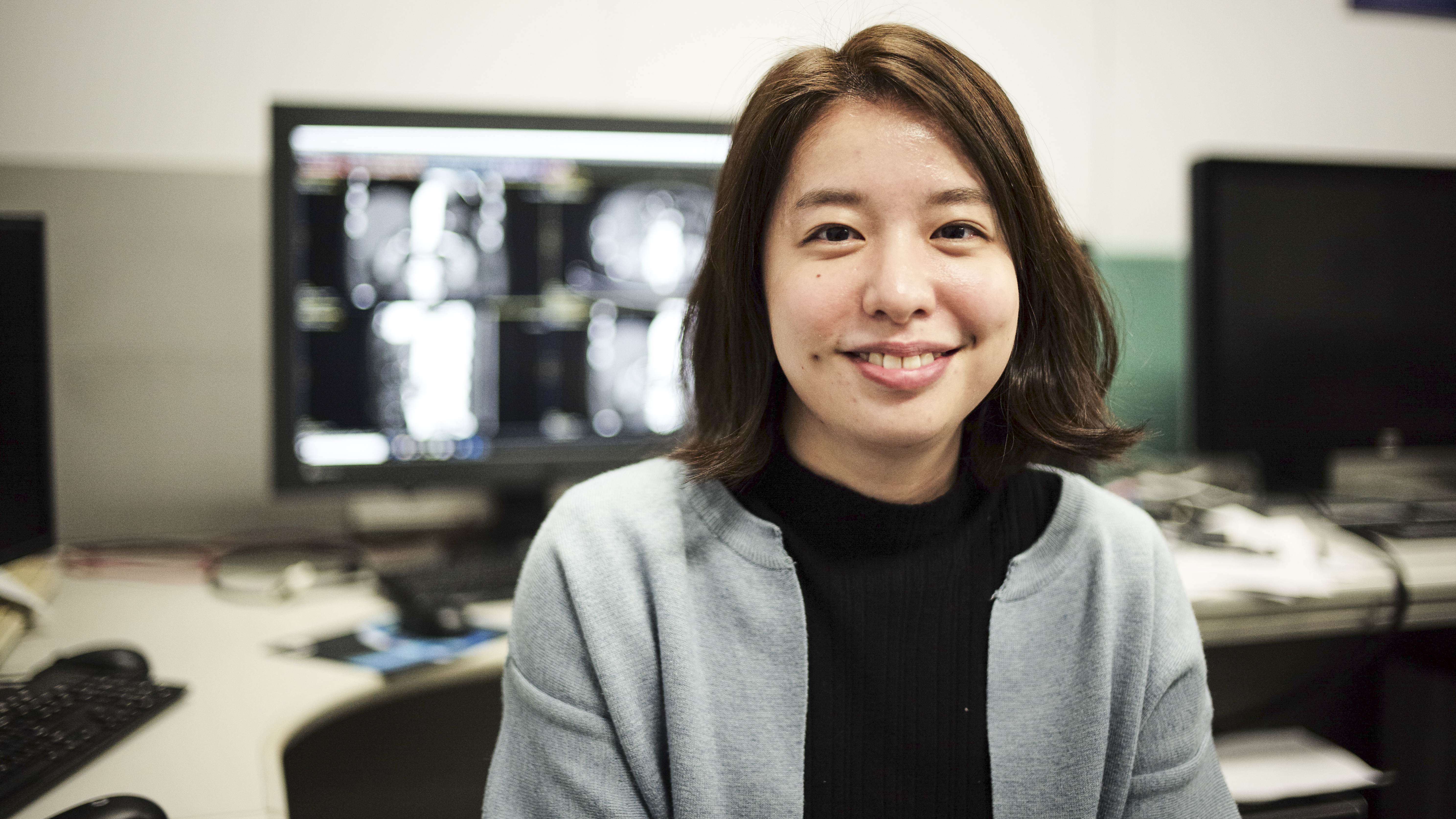In 1926, Edith Clarke became the first woman to present to the American Institute of Electrical Engineers. The GE engineer made electrical transmission lines significantly more stable, allowing utilities to dramatically increase the distance over which the lines could reach. That brought power to far-flung areas.
Edith Clarke. Credit: Thefamouspeople.com
In the 1930s, Katharine Burr Blodgett developed nonreflective coatings for glass, eventually patenting the first “invisible” glass. This groundbreaking work by the GE engineer had countless applications for eyeglasses, camera lenses, telescopes, and microscopes.
Katharine Burr Blodgett. Credit: Thefamouspeople.com
These two scientists mark the beginning of nearly a century of innovative women engineers who have been developing life-changing technologies at GE Laboratories, many of which are in use today at GE HealthCare. Women engineers bring a unique perspective to research and development by ensuring that their innovations work for all patients, solving challenges unique to women and providing diverse perspectives to the creation and maintenance of these healthcare technologies. Yet women make up only 27% of the workforce in STEM fields, according to the National Girls Collaborative Project.
Continuing this legacy today are hundreds of women engineers at GE HealthCare igniting bold ideas to reimagine the future of healthcare. They are working to solve the industry’s most pressing problems with groundbreaking advancements in medical software, artificial intelligence (AI), digital technology, manufacturing, field services, and more. Dedicated to building a healthier future for all, they bring their many perspectives to the table, forging a more holistic, inclusive, and innovative industry. Here are some of their stories.
Lianna Yang, Manager of Software Engineering, Seattle, Washington, USA
Lianna Yang grew up in Winnipeg, Canada, dreaming of building robots like the ones she saw in Saturday morning cartoons. Her middle school didn’t have a robotics team — so she started one. For her final high school project, Yang developed a 3D terrain-mapping robot to assist first responders. The goal was to allow responders to see if an area was unstable or how the landscape had changed after a disaster like an earthquake or fire. She even spent time encouraging other young girls as a counselor at a summer robotics camp.
Her fascination with robots continued at McGill University in Montreal, where she studied software engineering with a concentration in robotics. And it’s still in evidence today at her job at GE HealthCare, where she uses AI to improve healthcare management.
“Being able to build something from scratch and have it do what you want it to do is just amazing, mind-blowing,” Yang says. “I love it.”
Coumba Marega, Product Service Director France, Belgique, Luxembourg and Francophone Africa, Buc, France
Coumba Marega has spent most of her life breaking barriers and blazing a path for others to follow. She left Senegal at 19 to study at the Aix-Marseille University Faculty of Sciences in France, then joined an engineering school in Paris as one of just eight women in the 180-person engineering program. Marega joined GE HealthCare as an intern in 1997 and never left, moving through engineering, service, and supply chain over the past 27 years as one of the few women — and even fewer Black women — in her field.
“GE HealthCare is an industrial and multicultural company,” Marega says. “We have diverse people, multiple languages, multiple backgrounds. GE HealthCare colleague diversity is representative of our global customers. I love it. I feel fully integrated with it. Everything is based on my skills and my performance. I have my chance to move, to progress, to grow, to get bigger jobs. That is super powerful.”
These days, as a director, Marega is responsible for maintaining technical expertise and providing technical support, repair and training in France, Belgium, Luxembourg, and Francophone African countries. Her team works alongside clinicians and technologists, training them on their technology and serving as a point of contact when they need support. She oversees a team of 80 and actively engages in mentorship, particularly through the GE HealthCare Women’s Network. She participates in programs to introduce young women and girls to engineering and STEM roles and provides guidance and support to other women within the company and beyond.
Alejandra Aragón, Site Quality Leader, Ciudad Juárez, Mexico
Alejandra Aragón has always been driven by a passion to make a difference in the world. In 2014, as a student at Autonomous University of Ciudad Juárez, Aragón developed a wireless system to monitor vital signs. The class project fueled her interest in biomedical engineering and laid the foundation for her future career.
“Engineers use their problem-solving skills to confront many of the world’s biggest concerns,” she says. Aragón joined the company in 2015 as an intern in the Lean Challenge program, focusing on maintenance improvements. “At GE HealthCare, I have the opportunity to create new technologies that will improve the way we live.”
She currently oversees manufacturing operations quality and ensures compliance with regulations and quality standards — and she is making an impact. Tapping into her engineering background, her team helps ensure that technology is tested and ready to go for healthcare providers and patients who rely on it daily.
She recently was chosen as the most admired woman in her department, an honor she didn’t see coming but feels a strong obligation to live up to. “Sometimes we are just doing our work and we don’t think about how we can be impacting others,” she says. “This has inspired me to continue working hard to help younger women in the quality team develop their confidence.”
Lina Liu, Principal Electrical Engineer, Beijing, China
Lina Liu was drawn to engineering as a child growing up in China, and she eventually attended the university across the street from her house. “The process to understand the world and the working principles behind everything is so exciting, especially when I can make something to change lives for the better using my knowledge,” she says.
That’s exactly what Liu is doing now as part of GE HealthCare’s new product development team. She also assists with CT system electrical engineering design and system maintenance for installed medical equipment at customer sites. By improving equipment design from the start, she and her team can help reduce equipment downtime, allowing providers to serve the many patients in China who need medical scans as part of their care experience. She’s been with GE HealthCare since she graduated in 2007 — and has no plans to leave.
“GE HealthCare is a good company for young graduates,” Liu says. “It provides a good study platform to learn hard skills and soft skills. It makes me collaborate with global teams and communicate with experts from all kinds of fields. It helped me to grow into an experienced engineer.”
Anuprriya Gogna, Lead Advanced Technology Engineer, Bengaluru, India
Anuprriya Gogna joined GE Research in 2017. When she moved to GE HealthCare in 2019 and began working with the women’s health team, she had trouble distinguishing a head from a leg on her first ultrasound scan of a fetus. But seven years later, she’s a specialist at GE HealthCare, working to improve scan time, workflow efficiency, and image quality — all with the help of AI. For providers caring for expecting moms, the software she works on is critical in enabling detection of potential issues and confident diagnoses.
“The possibility of making a true impact on somebody’s life, their health, is very pronounced in the healthcare domain,” Gogna says. “I would much rather have my technology and skills be used for something that’s actually life-altering. It’s way more personally rewarding. I love getting up every morning to start my workday.”
Gogna is an unintentional engineer. She planned to be a doctor, but at university she became fascinated with trying to understand how things worked and found joy translating theoretical knowledge into practical solutions to change lives with technology. She encourages younger women to try out the field. “For me it was an unplanned venture, but for you it could be an active move to a fulfilling career,” she says. “If engineering is something that interests you, don’t let anybody tell you not to try. Go and explore it, without fear. If it interests you, you’ll be happy, even with the struggles that come your way.”
Risa Shigemasa, Senior Architect Engineer, CT Clinical Applications and Image Quality, Tokyo, Japan
Risa Shigemasa started out doing basic research after finishing her master’s in biology at the University of Tokyo. But as much as she enjoyed working in the lab, she wanted to work more directly with patients. When she heard about an opening at GE HealthCare, she applied immediately. “I love that there are numerous opportunities to meet and work closely with great engineers all over the world,” Shigemasa says. “I strongly feel that joining GE HealthCare opened my future to countless possibilities.”
She joined the company about nine years ago and now works on the clinical applications and image quality team for computed tomography (CT). One of her primary jobs is developing deep learning–based CT algorithms that help improve image quality and reduce scan times, helping clinicians make earlier and more confident diagnoses.
Shigemasa would love to see even more women join her. “All of us women actively working in the engineering field are here to support them in pursuing their dreams,” she says. “If we work together, I’m sure we can overcome and contribute to advancement in healthcare.”
Engineering a Healthier Future For All
Today, GE HealthCare is making active investments in recruiting, training, and developing women engineers with its internal leadership programs, tuition assistance, and Women’s Network. The company also engages with hundreds of future female engineers each summer, inviting local girls to attend a free, hands-on STEM camp near their key facilities.
Click here to explore open engineering roles and join our talent community to get future opportunities delivered directly to your inbox.

